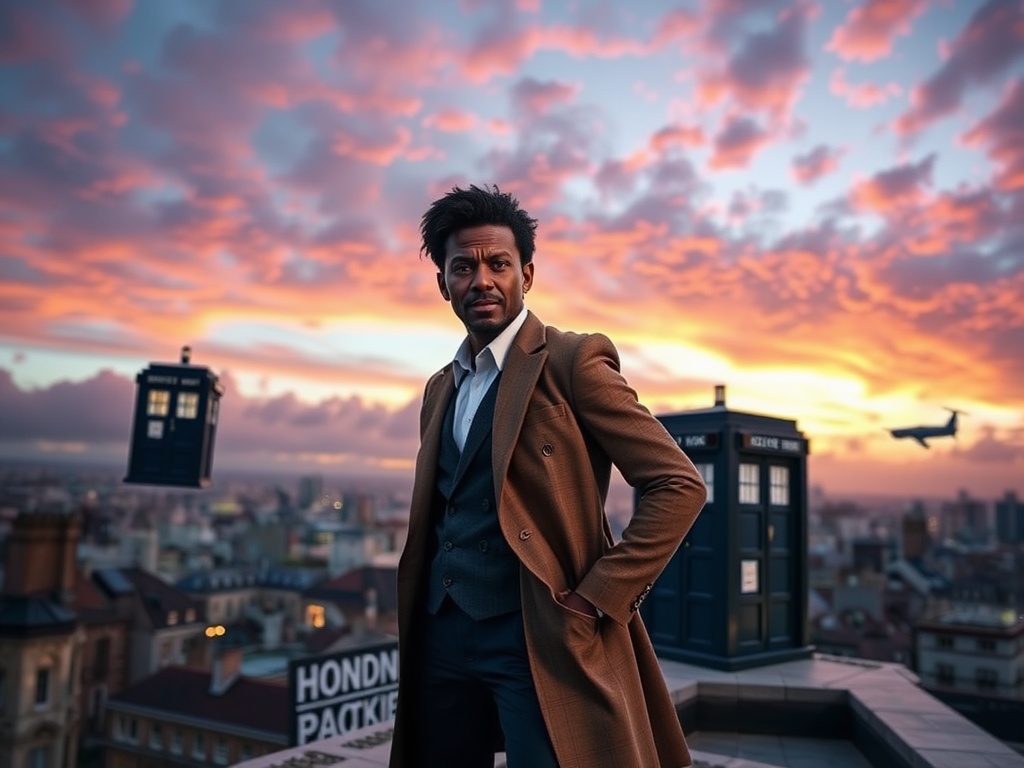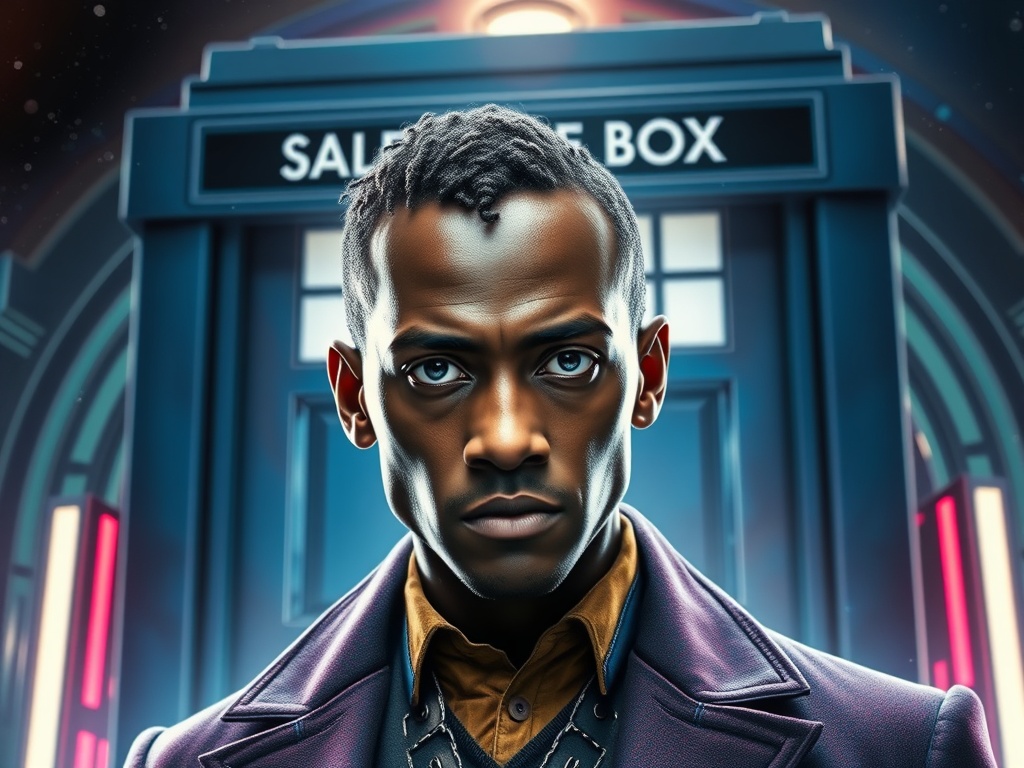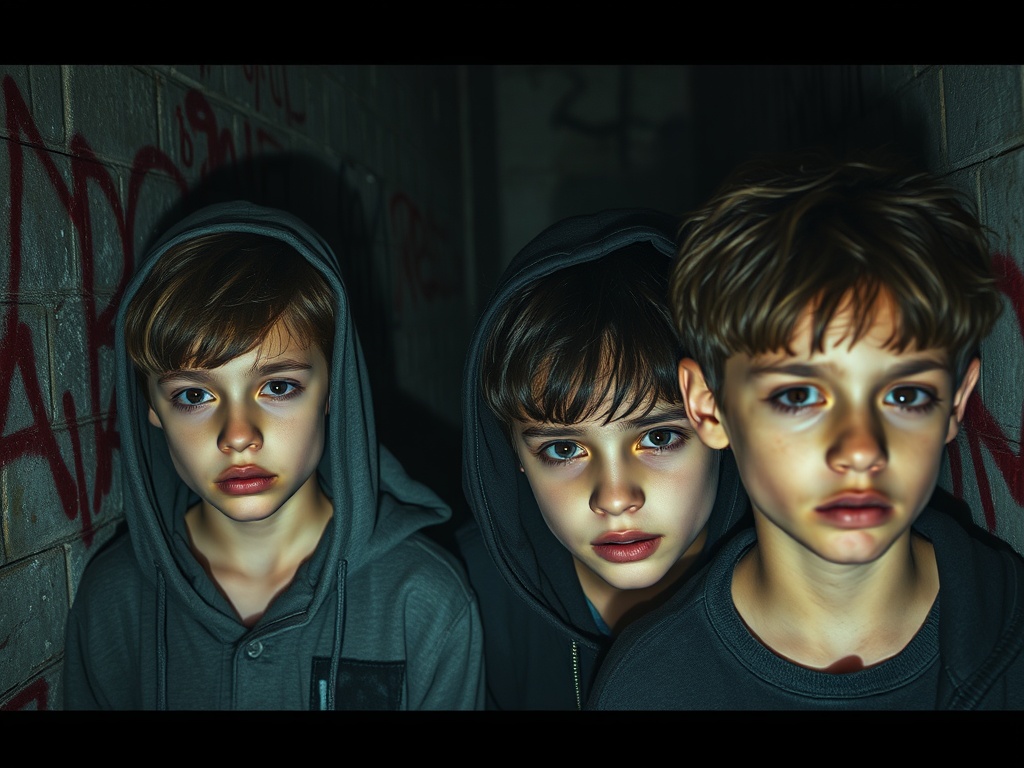Ncuti Gatwa’s Journey as The Doctor: A Complex Tale

Ncuti Gatwa’s casting as the Doctor in Doctor Who seemed like a brilliant decision back in 2022. Here was a vibrant, captivating, and immensely talented comic performer—an emerging star from the global sensation Sex Education. While Gatwa had gained considerable recognition, he wasn’t yet a household name, which added an element of intrigue. His unique blend of charisma and likability was expected to breathe new life into a franchise that had been struggling. After the tumultuous periods of Jodie Whittaker’s tenure and the challenges faced during Steven Moffat’s era, there was a palpable sense of hope that the then-29-year-old Gatwa—who is black, queer, and incredibly popular—could rejuvenate the series and attract a diverse audience.
However, the reality has unfolded quite differently. Despite initial optimism, ratings have continued to decline. Reports have surfaced of crew layoffs, and there is growing speculation about the possibility of the show being canceled altogether. Remarkably, Gatwa’s second series hasn’t even been aired yet, and already The Sun claims he has filmed his regeneration scene, which is a significant indication of behind-the-scenes turbulence.
The BBC has stated that it does not comment on the future of a program until a series has been released, especially as this latest iteration is now a co-production with Disney. Yet, the situation seems bleak, particularly in light of the absence of any denial from Gatwa. Instead, rumors circulate that he—who has also appeared in the blockbuster Barbie and the Apple TV+ series Masters of the Air—has had to turn down other roles due to his commitments, and is becoming increasingly eager to transition to Hollywood, where more significant opportunities await him.
Is This the Inevitable Outcome?
One must wonder if this outcome is truly surprising or if it was an inevitable result of a casting strategy that aimed to capitalize on Gatwa’s burgeoning fanbase without adequately addressing the realities of a struggling franchise. This miscalibration also failed to consider what is truly essential to its audience and the stage of Gatwa’s career.
The role of the Doctor is often viewed as a coveted opportunity, a milestone that many actors dream of achieving. However, it carries with it a heavy burden. The Doctor is not just a character; they are a cultural icon that holds immense significance for fans spanning multiple generations. This makes it virtually impossible to satisfy everyone. As a result, the actor in this role becomes synonymous with every critique of the series—especially during Gatwa’s era, where some fans accused the BBC of injecting “wokery” into storylines. The actor becomes the focal point for every complaint regarding the show, bearing the weight of its success or failure.
Such a level of responsibility can be overwhelming. To navigate it successfully, an actor must possess an unwavering desire for the role. It cannot merely be a stepping stone in their career; rather, it must represent the pinnacle of their aspirations. This is where Gatwa faced challenges. Casting a rising star—one who is in high demand and possesses limitless potential—was always going to be a precarious decision. Such talent is typically bound for other significant ventures that the commitments of British television may not accommodate.
The Doctor cannot simply transition to Los Angeles to pursue a film career. The Doctor is not able to headline a prestigious drama series. Instead, the Doctor must remain dedicated to the rigors of filming in Cardiff, battling Daleks, all while facing the harsh scrutiny of internet critics who lament that the show isn’t what it once was.
It is indeed a pity that this beloved character can swiftly become a burden—especially considering the reputational risks associated with public backlash. The star of Doctor Who becomes secondary to the show itself. Before assuming the role, Gatwa had cultivated a personal brand that resonated with many. Now, however, he finds himself as the face of a diminishing franchise—an association that many emerging actors would likely wish to avoid.
Furthermore, Gatwa has been largely distanced from the very fans that the BBC may have hoped he could attract. This reveals a significant miscalculation: the idea that any talented actor could effortlessly draw their loyal fanbase to a new program is a fantasy. It displays a fundamental misunderstanding of audience dynamics, especially in terms of how to retain viewers or entice them back.
While Gatwa may be an ideal fit for the role of the Doctor, the timing was not right. He is too young, too sought-after, and the program is in too precarious a position for this scenario to endure. Who can blame him for wanting to exit while he remains a hot commodity? A lesson for future casting directors: consider selecting someone with fewer ambitions for such a demanding role. Remember, no single name is substantial enough, and no fanbase devoted enough, to magically alter the fate of Doctor Who.




